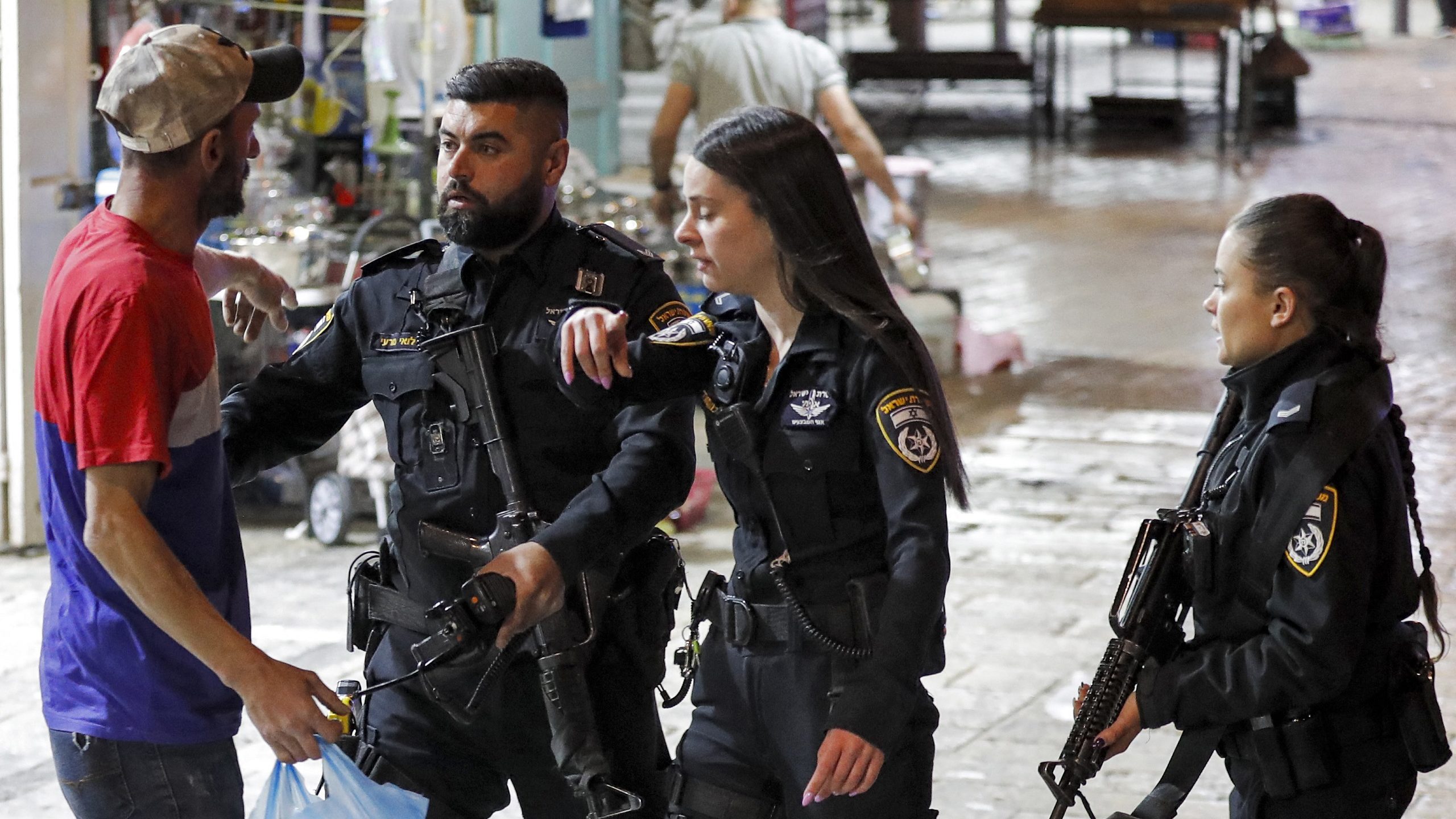Surge in Violence Threatens Israel’s Fragile Government
Netanyahu supporters keep up the pressure on coalition conservatives to defect
The continued tension threatens to lead to the collapse of Israeli Prime Minister Naftali Bennett’s unwieldy coalition.
Last month’s surprise resignation as Knesset whip of lawmaker Idit Silman, a member of Bennett’s right-wing Yamina party, cast doubt on the future of the government and raised the chances of early elections.
An uptick in Israeli-Palestinian violence is creating tremendous pressure on Bennett from all sides of the political spectrum.
Israeli columnist Ben-Dror Yemini told The Media Line the main obstacle facing the current government is the increased violence over the last six weeks.
A Palestinian man was shot and killed on Thursday night while allegedly attempting to enter a home, armed with a knife, in the West Bank settlement of Tekoa.
A 19-year-old Palestinian resident of Ramallah stabbed an Israeli border policeman at Damascus Gate, outside of Jerusalem’s Old City, on Sunday evening. Israeli forces opened fire, wounding the assailant. The policeman was taken to Hadassah Mount Scopus Hospital in moderate condition.
Two Palestinians were arrested earlier on Sunday, suspected of carrying out an attack last Thursday on Israelis in Elad, an ultra-Orthodox town east of Tel Aviv, which killed three people and wounded four others.
A group of right-wing Israelis protested near Elad, calling on Bennett to resign.
Yemini says time may be running out on this government.
“It’s almost impossible for the government to be stable with only 60 [Knesset] members in the coalition” in the 120-member legislature, Yemini says.
It happened in the past where such a government was able to survive, “but with the campaign of [opposition leader Binyamin] Netanyahu supporters, it’s not going to be easy. The pressure is just huge; it’s almost unbearable,” he continues.
Yemini says the opposition doesn’t have a majority to win an election and be able to form a strong government of its own.
“It’s kind of a standoff; no one would win.”
The current government is holding onto power by a thread, and it’s composed of right- and left-wing factions, Jews and Arabs, an awkward coalition of eight political parties from a diverse collection of ideologies, including a small Islamic party called the United Arab List (commonly known by its Hebrew acronym, Ra’am), all united around one goal: defeating Netanyahu.
Mohammad Majadleh, a political analyst for Israel’s Channel 12 and the Anas Arabic radio station, told The Media Line the future of the government depends on two main issues.
“First, everything related to security developments and escalation, specifically what is happening in Jerusalem and at the blessed Al-Aqsa Mosque,” says Majadleh.
He says the latest spike in tensions hurts Ra’am’s popularity among its base, as criticism of its chairman, Mansour Abbas, grows and calls for him to pull out of the government mount.
“Any escalation there by the security forces will make the position of the United Arab List difficult and weaken its ability to return to the government coalition, especially now that it has confirmed that it will return to the coalition only when there are understandings between Jordan and Israel regarding the status quo at Al-Aqsa Mosque,” Majadleh says.
Ra’am already suspended its participation in the coalition in an effort to assuage its supporters, but this has had little practical effect as it took place during a Knesset recess. The party is expected to resume supporting the coalition on Monday, when the legislature returns to work, although at least one of Ra’am’s four lawmakers opposes this.
Following Silman’s April 6 defection, former premier Binyamin Netanyahu urged other right-wing lawmakers in the coalition to follow suit.
Netanyahu, the longest-serving prime minister in Israeli history and a dominant figure in its political landscape, has been vocal in his criticism of the government and of Bennett, a former ally and protégé.
Majadleh says many on the Right describe Bennett’s government as weak, and his ability to convince members of his government to stay on is critical for his political survival.
“The other matter is the dynamics among the parties in the ruling coalition. If this government ensures that another dissident does not leave the coalition, it will be able to stay in power for a few months.”
Since the beginning of 2022, 18 Israelis and 49 Palestinians have been killed, and Yemini notes that these numbers are troubling for Bennett.
Palestinians say the catalyst for increasing tension is the situation in east Jerusalem and at Al-Aqsa Mosque compound, while Yemini says Israelis have been consumed with domestic issues for the last few years.
“There is a stalemate in Israeli society, and the country is split in half,” Yemini says, adding that the last few elections were not about violence, building settlements, or the two-state solution.
“It was only about the legal system and Bibi [Netanyahu], himself. It was not about Left and Right; he took the whole stage,” he says.


